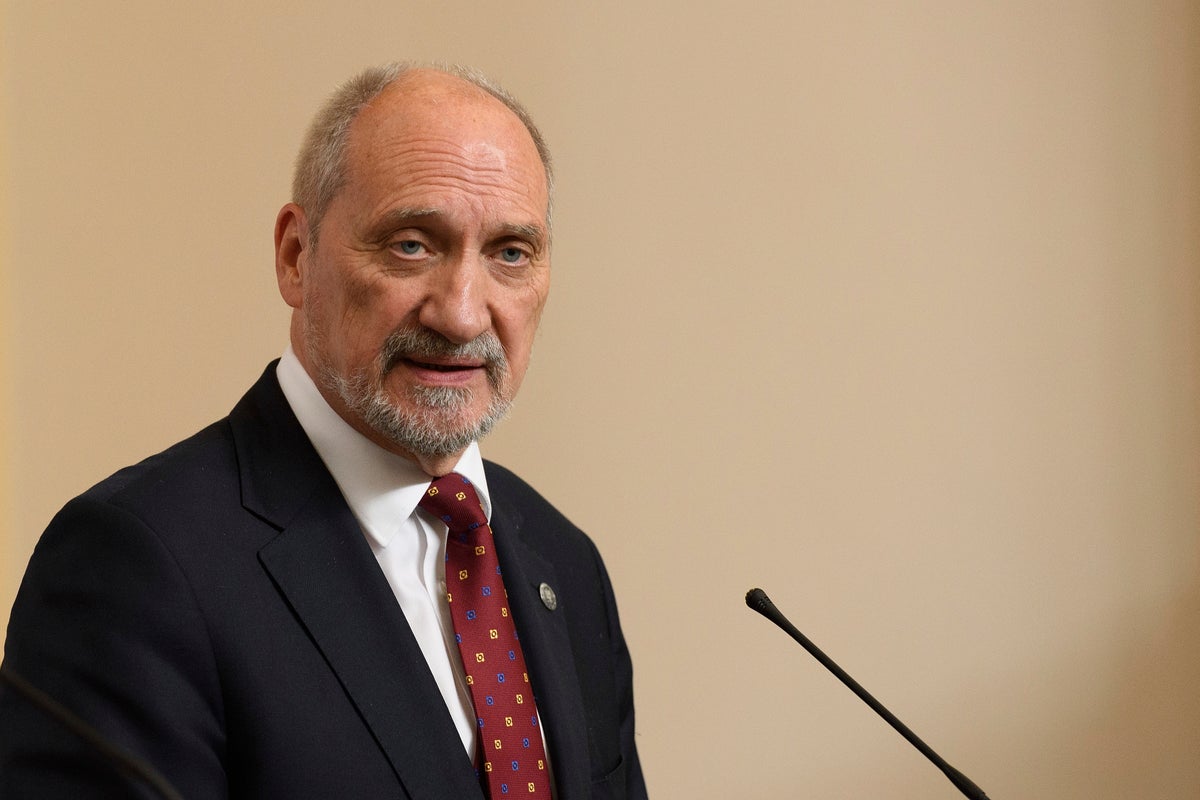
The head of a special commission investigating Russian and Belarusian influences in Poland said Wednesday that it will refer to prosecutors a former defense minister whose decisions it said impaired Poland’s defenses ahead of Russia’s 2022 war on Ukraine.
The commission was launched in May by the pro-European Union government of Prime Minister Donald Tusk to investigate cases of Russia and Belarus exerting influence on Poland’s politics since 2004.
Tusk and other officials say Poland, a key ally of Ukraine, is facing intensified hybrid attacks from Russia and its neighbor and ally Belarus that include acts of sabotage, cyberattacks and growing migrant pressure along the Poland-Belarus border.
Poland's previous government was in the hands of the conservative Law and Justice party which put Poland at odds with the EU, chiefly over changes to the country's justice system and rule-of-law principles. The current administration has been taking steps to hold officials of the previous government accountable for what it says are serious irregularities.
Gen. Jaroslaw Stróżyk, head of the commission and the Military Counterintelligence Service, presented the first unclassified conclusions that saw some of the former government’s decisions as potentially hurting Poland’s interests.
He said that some of the documents the commission has reviewed suggest the existence of “direct influence” by Russia, without providing further details. He said many of the documents remain classified.
Stróżyk said that Antoni Macierewicz, defense minister in 2015-18, without any analysis or consultation, canceled plans to purchase seven tanker aircraft for Poland’s F-16 jet fighters, thus reducing their airborne time and defense capabilities.
The commission said the decision was dictated by Macierewicz's “personal aversion to partners in the EU” and called it a “diplomatic treason.” Stróżyk said the commission will refer the former defense minister to prosecutors, who will decide whether to take further action.
The commission also blamed Macierewicz for hurting operations handled by Poland’s special services and intelligence by closing 10 of their 15 regional bureaus in 2017.
Stróżyk said the commission found no signs that the previous government held any debates or took any pro-defense decisions in response to U.S. warnings that Russia was preparing to attack neighboring Ukraine.
Macierewicz on Wednesday dismissed the report, calling it "absurd.”







